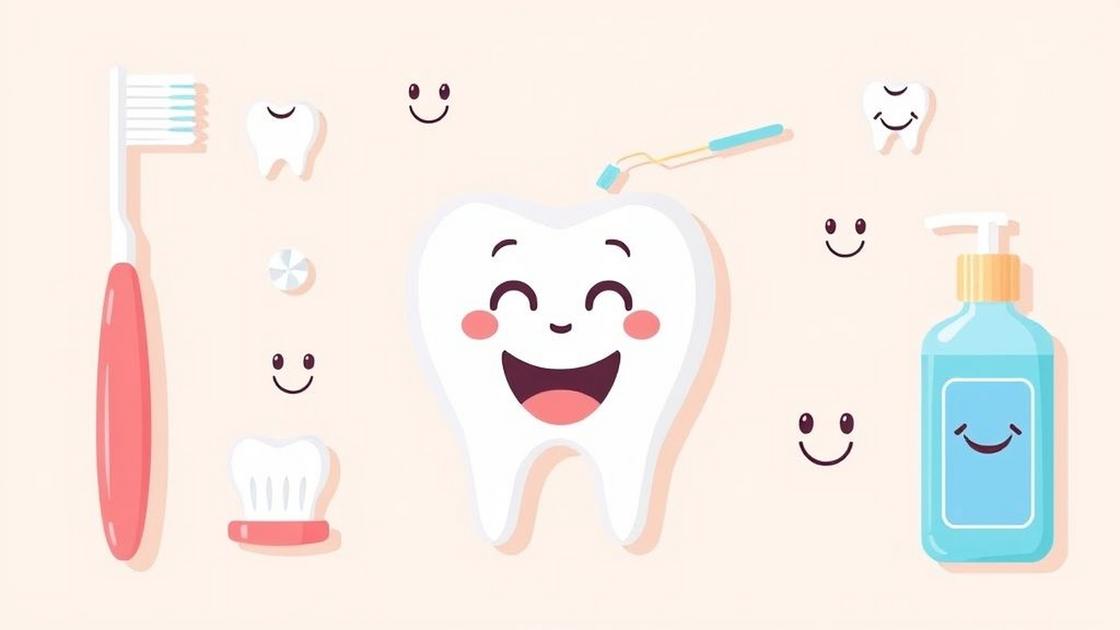Have you noticed how our smiles can fade over time? Many of us struggle with tooth health, especially as we age. This is where calcium and Vitamin D come into play. These essential nutrients can work wonders for your teeth, helping you combat problems like decay and weak enamel. In this guide, we’ll dive deeper into how to strengthen teeth effectively, transforming your dental health and boosting your confidence.
Understanding the Role of Calcium for Teeth
Calcium is a mineral that plays a vital role in forming and maintaining strong teeth. It is one of the primary components of tooth enamel, the hard outer layer that protects your teeth. Calcium helps to remineralize the enamel, making it more resistant to decay and damage. Without enough calcium, your teeth can become weak and more susceptible to cavities.
Many women over 30 start to notice changes in their dental health. This can be due to hormonal changes that affect calcium absorption. If you’re experiencing fatigue or other signs of nutrient deficiency, staying informed about calcium’s role in dental health is essential.
The Essential Benefits of Vitamin D for Oral Health
Vitamin D is equally important for oral health. It aids in the absorption of calcium and helps your body utilize it effectively. Without sufficient vitamin D, even a calcium-rich diet may not support tooth strength adequately. Vitamin D enhances the activity of calcium-absorbing cells in the intestines, promoting better utilization of calcium for both teeth and bones.
As women age, factors such as reduced sun exposure can lead to lower levels of vitamin D. This is especially relevant for those experiencing hormonal imbalances or fatigue, as vitamin D deficiency can contribute to these issues. Thus, maintaining adequate vitamin D levels is crucial for achieving optimal oral health.
Common Signs of Weak Teeth and What They Mean
Weak teeth can present several signs that your dental health might be at risk. Common symptoms include:
- Increased sensitivity: Sharp pain when consuming hot, cold, or sweet foods can indicate enamel erosion.
- Frequent cavities: If you find yourself visiting the dentist more often than before, it might be a sign of weak enamel.
- Discoloration: Teeth that appear dull or stained may lack the protective layer of enamel.
- Chipped or cracked teeth: A sign of weakened structure and a direct consequence of calcium deficiency.
If you are experiencing these symptoms, it’s time to take action. Nourishing your teeth with calcium and vitamin D can help restore their strength and beauty.
How Calcium and Vitamin D Work Together
Calcium and vitamin D work hand in hand to maintain strong teeth. When you consume calcium-rich foods, vitamin D ensures that your body absorbs this mineral effectively. This partnership is essential: Without enough vitamin D, your body cannot absorb calcium no matter how much you intake.
Incorporating both nutrients into your daily routine can significantly impact your dental health. This is especially important for women in their 30s and beyond, who may be experiencing hormonal changes affecting nutrient absorption. By understanding how these nutrients cooperate, you can better equip yourself to foster a healthier mouth.
Foods Rich in Calcium and Vitamin D for Strong Teeth
To boost your calcium and vitamin D intake, focus on including plenty of nutrient-rich foods in your diet. Here are some excellent sources:
- Dairy products: Milk, yogurt, and cheese are classic sources of calcium and also contain some vitamin D.
- Leafy greens: Spinach and kale are high in calcium and can be added to smoothies or salads.
- Fatty fish: Salmon, mackerel, and sardines are great sources of both calcium and vitamin D.
- Fortified foods: Some cereals and orange juices are fortified with vitamin D to help you meet your daily needs.
- Nuts and seeds: Almonds and chia seeds offer a good dose of calcium.
By adopting a diet rich in these foods, you can naturally fortify your teeth against cavities and damage while also addressing any issues like fatigue you may be facing.
The Importance of Regular Dental Check-Ups
Regular dental check-ups are crucial for maintaining oral health. Dentists not only help identify signs of weak teeth but also provide personalized advice on improving your calcium and vitamin D intake. Here’s why these check-ups matter:
- Early Detection: Finding issues such as cavities or enamel erosion early can prevent more significant problems.
- Professional Cleaning: Dentists remove plaque and tartar that regular brushing may miss, keeping your teeth and gums healthy.
- Advice Tailored for You: You can receive personalized recommendations based on your dietary habits and specific dental needs.
If you find it challenging to make time for self-care, remember that taking proactive steps for your dental health can also positively impact your overall well-being.
Supplements: Do You Need Calcium and Vitamin D?
If you struggle to get enough calcium and vitamin D from your diet, you might consider supplements. Many women in their 30s face fatigue and other health issues that might be linked to nutrient deficiencies. When choosing supplements:
- Consult your healthcare provider: Ensure that the supplements are appropriate for your needs and health conditions.
- Check the dosage levels: Too much calcium or vitamin D can lead to health problems, so it’s essential to take the correct amounts.
- Look for quality brands: Choose products that have been third-party tested for purity and potency.
Supplements may be a helpful addition to your daily routine, especially if you’ve experienced issues like insomnia or anxiety that can stem from nutrient deficiencies.
Exploring the Connection Between Diet and Dental Strength
Your diet plays a significant role in the strength of your teeth. Foods high in sugar and acid can lead to tooth decay, while those rich in calcium and vitamin D support tooth health and mineralization. Consider these points:
- Balanced approach: A diverse diet that includes plenty of fruits, vegetables, lean proteins, and whole grains can support overall health, including dental health.
- Limit sugary snacks: Reducing sugar intake minimizes the risk of cavities caused by sugary acids.
- Hydration is key: Drinking plenty of water helps wash away food particles and bacteria that can harm your teeth.
By making little adjustments to your diet, such as reducing processed foods, not only can your teeth become stronger, but you may also notice improvements in your energy levels and overall health.
Lifestyle Changes for Better Tooth Health
In addition to a nutrient-rich diet, certain lifestyle changes can enhance dental health. Here are some tips:
- Quit smoking: Smoking can stain teeth and contribute to gum disease.
- Limit alcohol consumption: Excessive alcohol can cause dryness in the mouth, increasing the risk of cavities.
- Practice good oral hygiene: Brush your teeth twice a day, floss regularly, and consider using an antibacterial mouthwash.
Implementing these changes not only promotes strong teeth but also helps you feel more empowered in your health journey. If you ever feel overwhelmed, remember that change takes time and patience, and you’re not alone on this path.
Empowering Yourself for a Brighter Smile
Taking an empowered approach to your dental health can lead to lasting changes. By focusing on calcium and vitamin D, understanding their benefits, and making simple dietary adjustments, you can work toward achieving a healthier smile. Many women like you have transformed their dental health with these straightforward steps. You too can conquer feelings of fatigue and other challenges by prioritizing your health with the right nutrients.
Stay motivated and remember, every positive step you take enhances your well-being and revitalizes your smile. Discover more solutions and empower yourself for a brighter future through the supportive community of women who have walked this journey before you.






